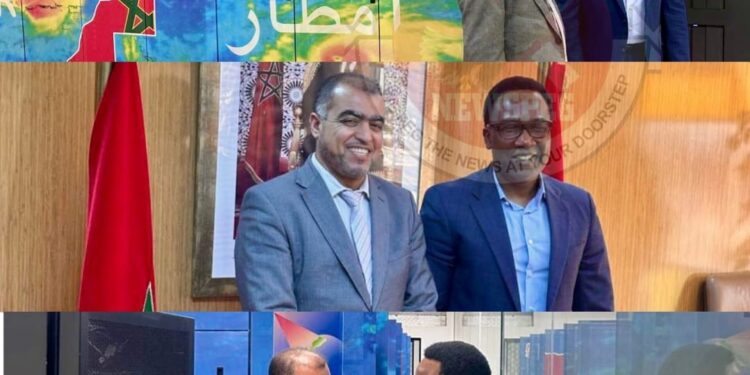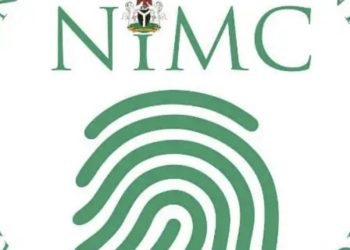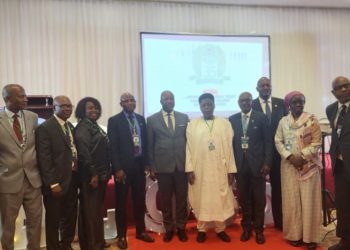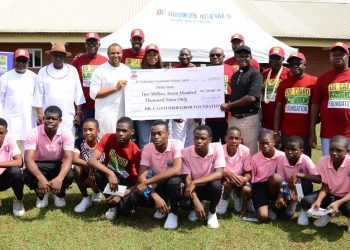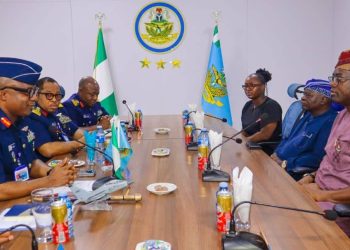By Nkechi Eze
The Director General and Chief Executive Officer of the Nigerian Meteorological Agency (NiMet), and Nigeria’s Permanent Representative with the World Meteorological Organisation (WMO), Professor Charles Anosike, has deepened bilateral cooperation with the Kingdom of Morocco on advanced meteorological science and climate services.
At the sidelines of the ongoing United Nations Systematic Observation Financing Facility (SOFF) workshop for Peer Advisors and Implementing Entities in Casablanca, Morocco, Professor Anosike paid a working visit to the Directorate of General Meteorology (DGM), where he held strategic discussions with his Moroccan counterpart, Mohammed Dhkissi.
The visit featured a bilateral meeting and a guided tour of the Moroccan meteorological facilities, focusing on enhanced collaboration between both nations in Artificial Intelligence (AI)-based weather forecasting, early warning systems, and climate resilience.
Both Professor Anosike and Dhkissi agreed to formalize their discussions through a Memorandum of Understanding (MoU) that will establish a framework for sustained technical cooperation and capacity development. The partnership will cover multiple areas of mutual interest, including the implementation of the WMO Integrated Global Observing System (WIGOS) Centre in Abuja, Nigeria, and the establishment of an instrument calibration centre in the same city to strengthen regional data accuracy and standardization.
Other areas of collaboration include exchange of expertise in data management and Information and Communication Technology (ICT); joint training for instructors in both French and English to promote inclusivity in meteorological education; sharing of experiences on agricultural meteorology and stakeholder engagement strategies; and cooperation in numerical weather prediction and the integration of Artificial Intelligence (AI) into meteorological modelling.
The partnership also seeks to build on NiMet’s recent achievements in implementing the SOFF Peer Advisory Services, where Nigeria’s leadership has been recognized across Africa for its proactive technical support to developing national meteorological services.
While reaffirming the long-standing cordial relations between NiMet and the Moroccan Directorate of General Meteorology, both leaders acknowledged the positive history of cooperation, which includes Morocco’s support for Nigeria in meteorological data exchange, participation in NiMet’s Stakeholders’ Engagement Forum, and Nigeria’s active role in ClimAfrica events hosted by Morocco.
Professor Anosike and Dhkissi pledged to sustain and expand this collaboration through effective participation in upcoming joint initiatives, including cost recovery strategies for climate resilience and long-term sustainability of both institutions.


